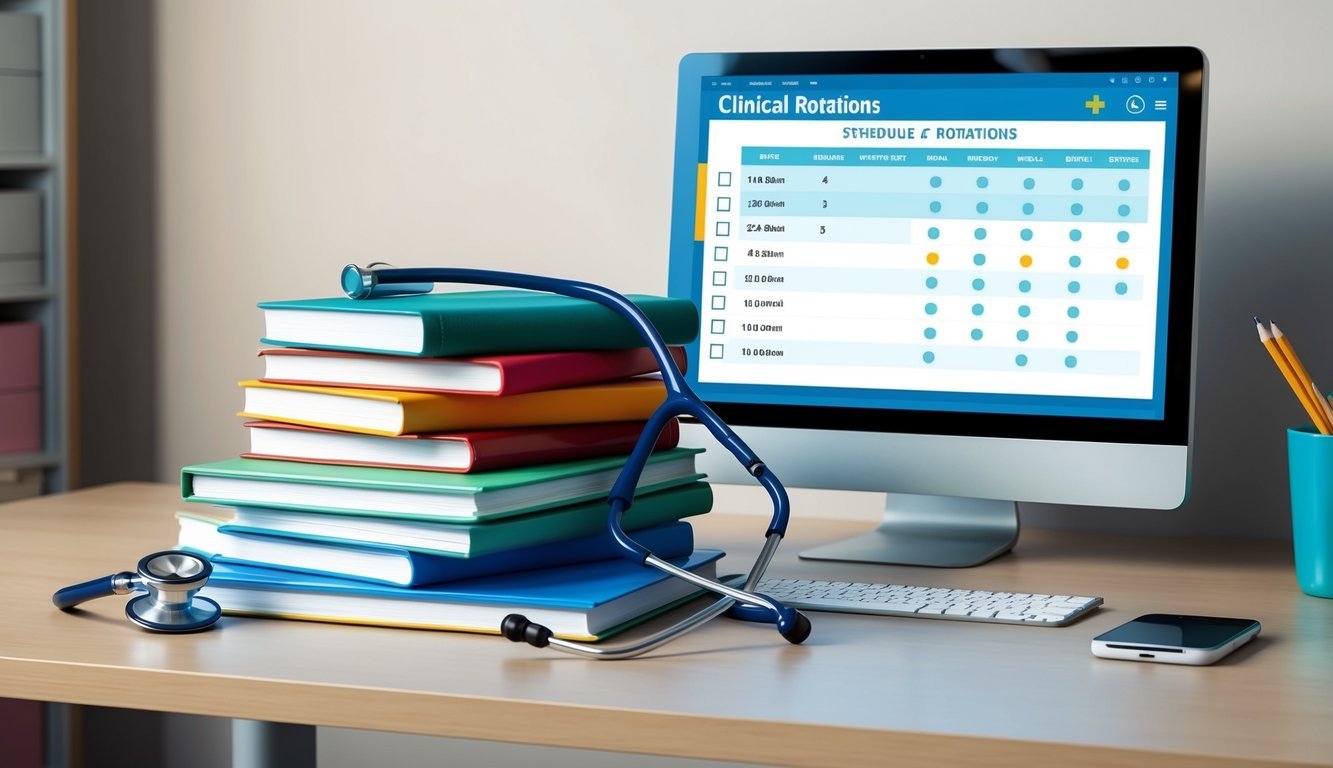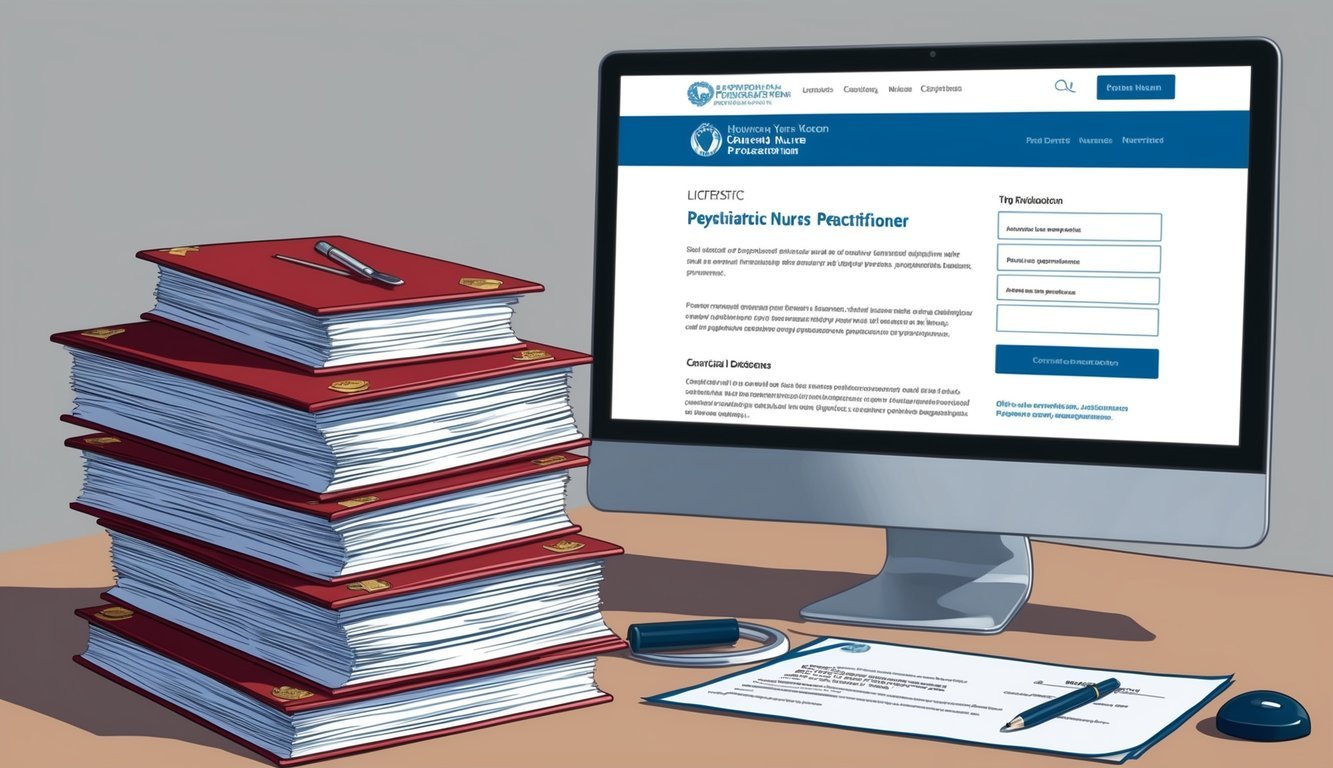The demand for Psychiatric Mental Health Nurse Practitioners (PMHNPs) is growing rapidly, with numerous programs available to help you enter this rewarding field.
Many online options can be completed in less than two years, allowing you to start your career sooner.
You might find programs that offer accelerated pathways, with some universities enabling you to finish in just one year.
For instance, Liberty University provides one of the quickest routes, allowing students to complete their post-master’s PMHNP program within three semesters.
Knowing which programs allow you to balance speed with quality education can make a significant difference in your professional journey.
In this article, you will discover various options for the shortest PMHNP programs, compare their requirements, and assess their overall value.
This will empower you to make informed decisions about your education and future career as a PMHNP.
Explore resources like NursingProcess.org and Nurse.org for detailed comparisons and insights into the best programs available.
Overview of PMHNP Programs

Psychiatric-Mental Health Nurse Practitioner (PMHNP) programs prepare nursing professionals to specialize in mental health care.
These programs offer various educational pathways and can be pursued through different formats, catering to diverse needs and schedules.
Educational Pathways
To become a PMHNP, you typically need a Master’s or Doctoral degree in nursing with a focus on psychiatric-mental health.
Many programs require a Bachelor of Science in Nursing (BSN) as a prerequisite.
Here are common pathways:
| Pathway | Duration |
|---|---|
| Traditional Master’s Degree | 2-3 years |
| Post-Master’s Certificate | 1 year |
| Doctor of Nursing Practice | 3-4 years |
Programs like those offered by Johns Hopkins University ensure a rigorous curriculum that meets national standards.
Online PMHNP programs provide flexibility, allowing you to balance work and education effectively.
Online Versus On-Campus Formats
Choosing between online and on-campus PMHNP programs depends on your personal preferences and circumstances.
Online formats often feature:
- Flexible scheduling: Ideal for working professionals.
- Accessibility: Attend classes from anywhere with internet access.
- Self-paced options: Progress at your own speed.
On-campus formats can offer:
- Hands-on experience: In-person clinical training opportunities.
- Networking: Direct interactions with peers and instructors.
- Structured environment: A focused setting for learning.
Many institutions, like Liberty University, offer short online PMHNP certificate programs designed for quick graduation timelines.
Assess your learning style and career goals to select the best format for your PMHNP journey.
Admission Requirements and Accreditation

Understanding the admission requirements and accreditation process is essential for prospective students in PMHNP programs.
These factors ensure that you meet necessary qualifications and that your chosen program is recognized for its quality.
Prerequisite Qualifications
To gain admission into a PMHNP program, you typically need to fulfill specific prerequisites.
These qualifications often include:
- Bachelor of Science in Nursing (BSN): An accredited BSN is usually required.
- GPA: A minimum cumulative GPA of 3.0 is commonly expected, although some programs may have higher standards.
- Clinical Experience: Many institutions require at least one year of full-time nursing experience.
- Recommendations: Three letters of recommendation from professional or academic sources are usually needed.
These requirements may vary by institution, so it is important to review the specific criteria for each program before applying.
Accrediting Bodies
Accreditation is crucial for ensuring that the PMHNP program you choose provides quality education.
Programs should be accredited by recognized bodies, such as:
- Commission on Collegiate Nursing Education (CCNE): Ensures the quality and integrity of nursing education programs.
- Accreditation Commission for Education in Nursing (ACEN): Focuses on nursing education across various levels, including certificate, associate, and baccalaureate programs.
Choosing a CCNE-accredited program, for example, can enhance your educational experience and improve your job prospects post-graduation.
Always verify that the nursing school you are interested in is accredited to ensure it meets educational standards.
Curriculum and Clinical Experience

The curriculum for a PMHNP program is designed to provide you with a comprehensive understanding of psychiatric nursing and mental health care.
Your educational journey will include both theoretical coursework and practical clinical experiences essential for certification.
Course Structure
In the PMHNP program, you will engage in a variety of course topics aimed at building a strong foundation in mental health nursing.
Key subjects typically include:
- Nursing Theory: Understand the principles that govern psychiatric nursing practice.
- Psychiatric Assessment: Learn to evaluate mental health disorders effectively.
- Treatment Modalities: Explore different therapeutic techniques and pharmacological interventions.
- Clinical Psychology: Gain insight into behavioral and psychological principles affecting patient care.
Courses are often structured to allow for both online learning and in-person attendance, especially for clinical practicum components.
As you progress, you will work toward fulfilling the requirements for the PMHNP certification, often alongside a DNP program for advanced practice preparation.
Required Clinical Hours
Clinical experience is critical in a PMHNP program.
Most programs require you to complete between 500 to 1,000 clinical hours, providing a hands-on approach to psychiatric mental health care.
Your clinical rotation will typically involve diverse settings, including hospitals, outpatient clinics, and community mental health centers.
You’ll collaborate with experienced practitioners, gaining insights into real-world challenges in psychiatric nursing.
During these hours, you’ll hone your skills in assessment, diagnosis, and treatment planning, directly contributing to your readiness for state board certification.
This structured experience is vital as it prepares you for the complexities of mental health care and solidifies your knowledge base for the PMHNP certification process.
Certifications and Licensing

Obtaining the necessary certifications and licenses is crucial for anyone pursuing a career as a Psychiatric Mental Health Nurse Practitioner (PMHNP).
This process ensures that you meet the standards required to practice in various states and provides recognition for your expertise in the field.
Certification Examination
To become a certified PMHNP, you must pass the PMHNP certification exam administered by the American Nurses Credentialing Center (ANCC).
This exam tests your knowledge and skills relevant to psychiatric mental health nursing.
Key details about the certification include:
- Eligibility: Hold a Master’s or Doctoral degree in nursing with a focus on psychiatric-mental health, such as an MSN – Psychiatric Mental Health NP.
- Exam Format: The exam consists of multiple-choice questions covering various domains within psychiatric nursing.
- Duration: Candidates typically have 3 hours to complete the exam.
- Certification Renewal: Certification is valid for five years, requiring continuing education and retesting for renewal.
Passing the exam grants you national certification, affirming your qualifications as a psychiatric nurse practitioner.
State Licensing Requirements
Each state has its unique licensing requirements for PMHNPs, which you must meet to practice legally.
Understanding these requirements is vital for your career path.
Here’s a breakdown of common state licensing components:
- Application Process: Submit an application to your state’s nursing board, along with required documentation, such as proof of education and certification.
- Background Check: Most states require a criminal background check and fingerprinting as part of the application process.
- Fees: Licensing fees vary by state, so be prepared for these costs as part of your application.
- Continuing Education: Many states mandate that you complete continuing education credits to maintain your license.
Compliance with state-specific guidelines is essential to ensure you can practice as a Registered Nurse or Advanced Practice Registered Nurse (APRN).
This includes various certifications such as the post-master’s cert in psychiatric-mental health NP.
For specific details about your state, visit your local nursing board’s website.
Career Outlook and Advancement

The demand for psychiatric-mental health nurse practitioners (PMHNPs) is increasing due to a growing awareness of mental health issues.
This section highlights the employment opportunities available to PMHNPs and discusses the importance of continued professional development in enhancing your career.
Employment Opportunities
As a PMHNP, your career options are expansive.
The rising prevalence of mental health disorders has intensified the need for qualified professionals in various settings, including:
- Hospitals
- Community mental health centers
- Private practices
- Telehealth services
According to the National Institute of Mental Health, over 1 in 5 adults in the U.S. experience mental illness, creating a significant demand for advanced practice registered nurses equipped to address these needs.
Moreover, PMHNPs often collaborate with other healthcare professionals, enhancing their role in multidisciplinary teams focused on patient care.
The potential for specialization also exists, allowing you to focus on specific populations, such as children or geriatric patients.
Continued Professional Development
Engaging in continued professional development is crucial for advancing your career as a PMHNP.
Many employers prefer candidates who pursue further education and certifications.
Here are key areas to consider:
- Advanced certifications: Organizations like the American Nurses Credentialing Center (ANCC) offer certifications that can enhance your credentials.
- Workshops and seminars: These opportunities can help you stay updated on the latest treatments and trends in mental health care.
- Networking: Joining professional organizations allows you to connect with peers, mentors, and potential employers.
Taking advantage of these avenues solidifies your expertise and keeps you competitive in the job market.
This commitment to growth demonstrates your dedication to addressing psychiatric disorders and improving patient outcomes in mental health care.

